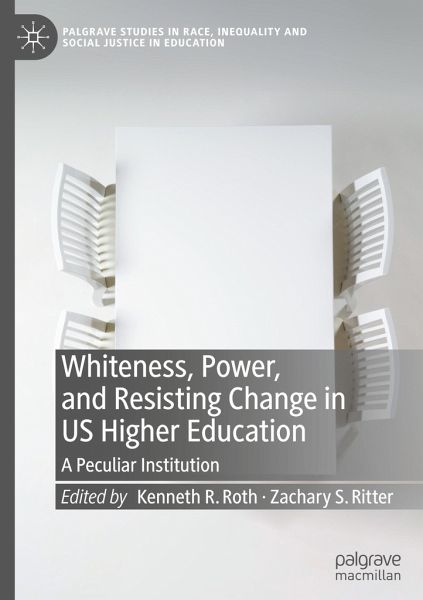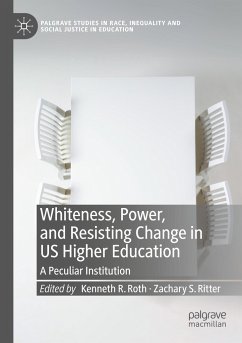
Whiteness, Power, and Resisting Change in US Higher Education
A Peculiar Institution
Herausgegeben: Roth, Kenneth R.; Ritter, Zachary S.

PAYBACK Punkte
0 °P sammeln!
This edited volume connects the origins of US higher education during the Colonial Era with current systemic characteristics that maintain white supremacist structures and devalue students and faculty of color, as well as areas of study that interrogate Whiteness. The authors examine power structures within the academy that scaffold Whiteness and promote inequality at all levels by maintaining a two-tier faculty system and a dearth of Faculty and Administrators of Color. Finally, contributors offer systemic and collective solutions toward a more equitable redistribution of power, primarily amo...
This edited volume connects the origins of US higher education during the Colonial Era with current systemic characteristics that maintain white supremacist structures and devalue students and faculty of color, as well as areas of study that interrogate Whiteness. The authors examine power structures within the academy that scaffold Whiteness and promote inequality at all levels by maintaining a two-tier faculty system and a dearth of Faculty and Administrators of Color. Finally, contributors offer systemic and collective solutions toward a more equitable redistribution of power, primarily among faculty and administration, through which other inequities may be identified and more easily addressed.














